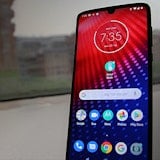
When you have virtually unlimited 24/7 internet access, it's easy to take your connectivity for granted. It's also easy to forget that the world wide web is much more than porn and YouTube - it's an essential source of education, information and social contact for everyone who uses it.
However, a UN report from its International Telecommunications Union arm reveals that, in spite of falling prices and improved infrastructure, over 60% of the world’s population is still without any form of internet access - and 90% of those going without live in developing countries.
Of the world’s 7.1 billion people, 4.4 billion remain unconnected. The UN report predicts that 40% of the world's population will have internet access by the end of 2013, but the overwhelming majority of those connected will be in developed, higher-income countries.
Access rates for a fixed line connection or mobile broadband are around 80% of citizens in developed countries, versus only 28% of those in the developing world.
It still remains low, but the good news is figures in low-income nations have increased: up from 12% in 2008 and averaging an 18% growth rate each year.
In developing countries mobile broadband is proving a popular choice, as it is less expensive than a fixed line connection. But comparatively, all forms of internet access are still more expensive than in developed nations.
The ICT Development Index
As well as compiling the above statistics, the International Telecommunications Union report also measures information and community technology development worldwide through its ICT Development Index.
The Index ranks 157 countries according to each nation’s level of information and communication technology access, use and skill.
In the report's most recent rankings, South Korea takes up the top spot for the third consecutive year, followed by the Scandinavians: Sweden, Iceland, Denmark, Finland and Norway.
The US is in 17th place, with the United Kingdom at number 8 and Australia in the 11th spot.
All countries in the report’s top 30 are unsurprisingly high-income, mostly highly-developed countries, underscoring the connection between internet access and affordability.
The Alliance for Affordable Internet
It's not all bad: the UN study also found that prices for fixed broadband fell by 30% each year between 2008 and 2011. So overall, prices are falling, and access is opening up for populations of developing nations - but there’s still a huge way to go.
Industry leaders and not-for-profit organizations have banded together to launch the Alliance for Affordable Internet. Founded by Google, Facebook, USAID, Microsoft and Yahoo - among others - the organization aims to achieve the UN development goal of keeping internet access below 5% of the average monthly income worldwide.
Currently, the price of internet access in the developing world costs 30% of the average monthly household wage. The Alliance’s goal is to make universal internet access a reality, by advancing affordable access to mobile and fixed-line internet for the two-thirds of the world currently not connected.
The Alliance will focus on ‘policy-drive’ solutions, including (in its own words) “…innovative allocation of spectrum, promoting infrastructure sharing, and increasing transparency and public participation in regulatory decisions.”
As we've reported previously, internet access has become increasingly essential for economic growth and human development. The Alliance aims to produce an annual 'Affordability Report' charting this relationship globally, with the first due to be published December 2013.
Related Articles
Related Topics
digital divide Alliance for Affordable Internet ICT Development IndexPopular Topics
Android Apple iPhone Samsung Google iOS Cell phone plans Rogers Telus BellFind Better Phones and Plans
Hundreds of cell phone plans unpacked. All the facts. No surprises.



































